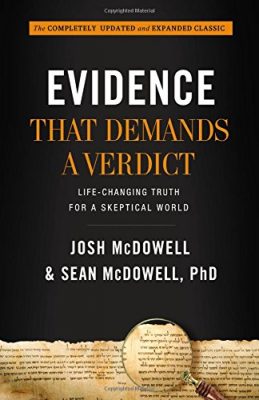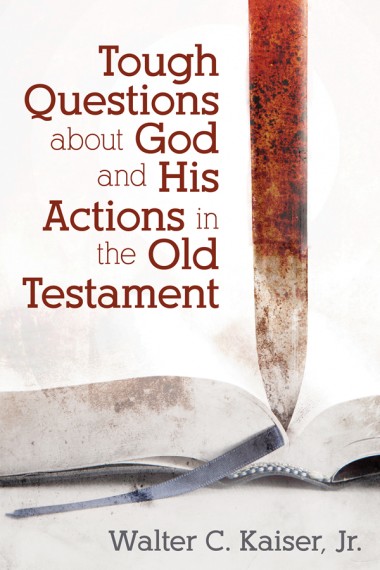 A reader sent an email today with these questions:
A reader sent an email today with these questions:
- If Jesus died in the place of others, why does everyone else also die?
- If the penalty for sin is hell forever, and if Jesus paid the penalty for all the sins of the world, why is Jesus not the only one in hell forever?
- Did God punish Jesus by making him die and go to hell, or did God reward Jesus by raising him up from death and lifting him up to heaven?
- If Jesus died on a Friday afternoon and rose from the dead by the next Sunday morning, was the penalty for all the sins of the world less than two days dead?
- If God punished Jesus for all the sins of others by making him die on a cross, why are Judas Iscariot, Pontius Pilate, and Caiaphas not all heroes and saints for fulfilling the will of God?
- If people should rejoice at the suffering and death of Jesus, as if his pain were their gain, should they mourn his resurrection and ascension, as if his gain is their pain?
- If we live because Jesus died, do we die because Jesus rose to live again?
- If people go to heaven because Jesus went to hell, do people go to hell because Jesus went to heaven?
- Did the crucifixion of Jesus cancel the sins of others, or was it really the worst sin of all?
- Would God be just if He punished the innocent in place of the guilty?
- If Jesus paid the penalty for all the sins of others, and salvation in unconditional, is not everyone saved, no matter what he believes, says, or does?
- If the purpose of Jesus was to die, why did his story not end with his death?
- If good deeds make no difference, because no one can earn salvation, why did Jesus say so much about what persons should and should not do?
- How could the penalty for sins be paid hundreds of years before those sins were done?
- If Jesus, like a scapegoat, took away our sins when he died, did he bring back our sins when he came back from the dead?
- How could Jesus be a substitute to go in our places and also be a leader and example whom we should follow?
- If we do not follow Jesus, but he goes one way so that we can go another way, how do we expect to end up where he is?
- If Jesus were God, and God demanded that Jesus die to pay the penalty for the sins of everyone else, did God commit suicide?
As I read through these excellent questions about the death of Jesus, I realized that I couldn’t answer ANY of them because I didn’t accept the presuppositions that were within each question.
 For example, with question #1, I do not believe Jesus died in the place of others. I do not believe in “substitutionary” atonement.
For example, with question #1, I do not believe Jesus died in the place of others. I do not believe in “substitutionary” atonement.
With question 2, I do not believe that the penalty for sin is hell forever.
With question 3, I do not believe that God punished Jesus by making him die and go to hell…
And so on throughout the list of questions….
This is the problem with the vast majority of theology today. We are asking wrong questions because we are beginning with wrong ideas about God, Jesus, sin, and hell.
All of the questions above disappear when we learn just a few things from Scripture. Like what?
- God does not require punishment for sin, or blood payment to forgive.
- God is infinitely gracious, forgiving, and loving.
- Jesus didn’t die to appease God or buy forgiveness from God.
- Hell isn’t what you think…
Start with those ideas, and the way you read and understand the Bible will forever be transformed. If you want help, here are three books to get you started:
- (#AmazonAdLink) The Atonement of God
- (#AmazonAdLink) Nothing But the Blood of Jesus
- (#AmazonAdLink) What is Hell?
Enjoy!




 I am currently writing a book about faith, and in it, I briefly address the idea of blind faith, or taking a leap of faith. I show that faith doesn’t actually allow for blind leaps, but instead, our beliefs change as we are persuaded and convinced by the evidence presented to us.
I am currently writing a book about faith, and in it, I briefly address the idea of blind faith, or taking a leap of faith. I show that faith doesn’t actually allow for blind leaps, but instead, our beliefs change as we are persuaded and convinced by the evidence presented to us.

 James 5:14 begins by asking, ”Is anyone of you sick?” While some try to explain away what James is writing about by saying that it does not actually refer to someone who is physically sick, but instead someone who is spiritually or emotionally weak, I think it is best to go with the traditional and most common way of reading this text and see it as a a reference to physical sickness.
James 5:14 begins by asking, ”Is anyone of you sick?” While some try to explain away what James is writing about by saying that it does not actually refer to someone who is physically sick, but instead someone who is spiritually or emotionally weak, I think it is best to go with the traditional and most common way of reading this text and see it as a a reference to physical sickness.
 When some people hear this explanation of James 5:14, they say, “Doesn’t this remove some of God’s glory or take away some of the credit that is due Him if we go to a doctor?”
When some people hear this explanation of James 5:14, they say, “Doesn’t this remove some of God’s glory or take away some of the credit that is due Him if we go to a doctor?”
 Here is an expanded version of how I responded to him:
Here is an expanded version of how I responded to him:


 I also got somewhat upset when he rejected out of hand the idea that Moses was writing a polemic against the religions of his day. He said that this sort of idea has been “thoroughly discredited” (p. 63). I find this funny, because most of the scholars I have read in my own research and study do not share Kaiser’s opinion.
I also got somewhat upset when he rejected out of hand the idea that Moses was writing a polemic against the religions of his day. He said that this sort of idea has been “thoroughly discredited” (p. 63). I find this funny, because most of the scholars I have read in my own research and study do not share Kaiser’s opinion.
